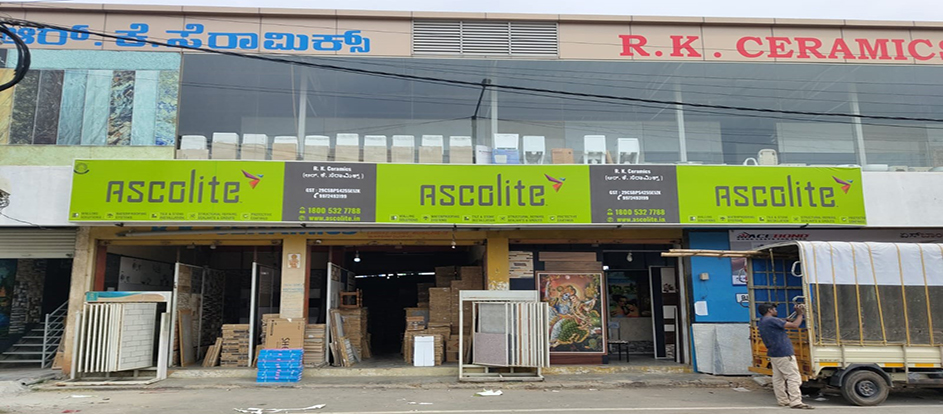Living in India, you would have come across huge billboards or flexes everyday. From highways to markets, the flashy material is used by advertising companies to draw people’s attention. Any wholesale or major market you visit will find numerous advertisements, names, images and banners, which have been placed there to attract as many customers as possible.
Psychological impact aside, these flex boards also have hazardous effects on the environment.
Also known as ‘Poison Plastic’, the flexes are made from a material called Poly Vinyl Chloride (PVC), a synthetic plastic polymer. Since PVCs are non-biodegradable, they do not degrade on their own, so, one of the options is to burn them. When burnt, they release toxic fumes that have serious implications on public health.
Another option is to send them to the landfills as waste pickers do not earn anything from the discarded flexes. This further burdens the trenching grounds with waste that does not dissolve for years together, “No one picks it up as it has no, so it is a major issue for the municipal corporations to clear it,” says Dipen.
“This commonplace plastic is one of the most toxic substances saturating our planet and its inhabitants. PVC contaminates humans and the environment throughout its lifecycle: during its production, use, and disposal. Few consumers realize that PVC is the single most environmentally damaging of all plastics,” says Greenpeace International.
In the 1960s, when governments across the world started prohibiting industrial chlorine, companies turned to alternatives and thus, there was in a rise in PVC production.
As per The Times of India, 90 per cent of all advertising in India in 2017 was done on PVC. On an average, around 18 tonnes of PVC flex is consumed per month.
However, the good news is that a transition to eco-friendly alternatives to PVC is possible, and many states in India have already initiated the switch.

Bengaluru-based Universal Products has developed one-of-its-kind eco-friendly flexes called ‘EcoSigns’ that are not only biodegradable but also recyclable. Founded by Dipen Mehta (originally from Rajkot), the company was launched in 1993 to provide foam banners for ads and campaigning purposes.
Speaking exclusively to The Better India, he says,
There are no recyclable flexes available in India and very few global companies develop PVC flexes that do not harm the environment. Despite rampant use, we are not aware of their harmful repercussions. We have invented 100 per cent recyclable and eco-friendly flexes as per the IS/ISO15985 report for digital printing.
Elaborating on the benefits, he says, “The product does not emit any hazardous gases when it comes in contact with chemicals like solvent ink. Though it is made of Polyethylene (PE), it can biodegrade within 14-15 months. More and more corporates, advertising, and printing organisations are coming forward to use our product.”
As for the cost, the PVC flex material at Rs 3-7 is cheaper than Ecoflex which is priced at Rs 8-10 per sq ft.
We have tried to keep our margins reasonable. But one has to realise that opting for cheap PVC will harm the environment in the long run. Investing a little more in greener alternatives now will save our valuable resources in future, he says.
The target audience includes corporate companies and government bodies. To help them achieve their ‘zero-waste’ target, Universal Products also offers a buyback policy where a customer can sell used flex to the company for Rs 15 per kilo.

Some of the big names who have opted for Dipen’s product include the Government of Kerala, Amul, Coca Cola, Himalaya Drug Co., and Hindustan Unilever.
Other means of promoting the product include talks, hosting events, marathons, exhibitions and so on, “We are trying to market our product in every possible sector to encourage more people to buy it. By 2020, the government aims to eliminate all single-use plastics. Ecoflex will make the implementation smoother.”
In the last four years, the company has sold flex more than 10 million square feet flex, with most customers from Kerala, Karnataka and Chhattisgarh, states where the PVC flex is banned.
Also Read: Kerala Uses 9,700 Tonnes of Plastic Waste to Pave 246 Km of Roads, Help Local Women
With an increase in demand and potential bans in other states, the company hopes to expand its production capacity by three times from the current 40,000 sqm/day to 1,20,000 sqm/day.
Nature has given us precious resources, like water and trees, to help us meet our needs. We cannot be selfish by only taking, without giving back. It is time everyone takes up responsibility towards creating a sustainable environment, he concludes.
Universal Products is looking for investors and industry stakeholders for a possible association to take this initiative across the country and the globe. Get in touch with them here. Or write them at products93@gmail.com
(Edited by Shruti Singhal)